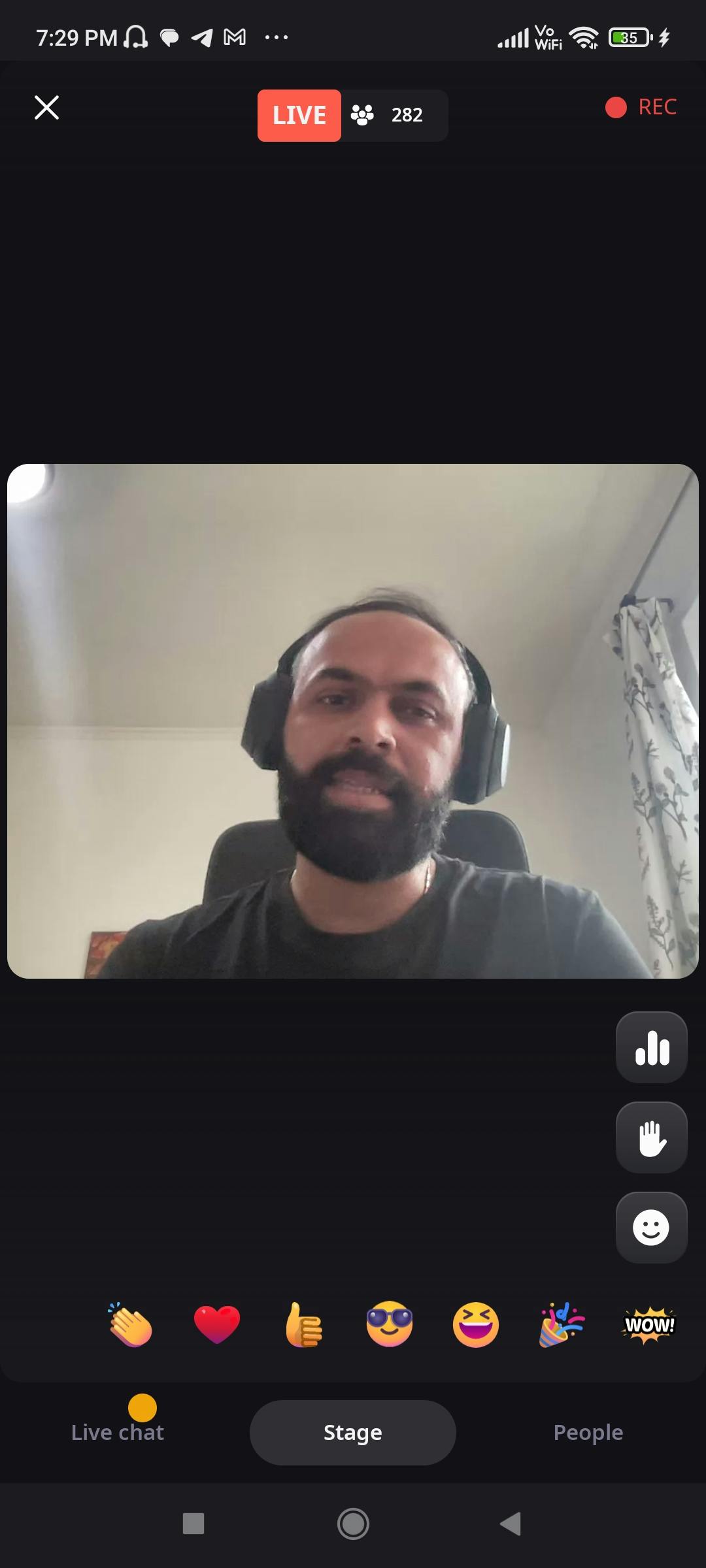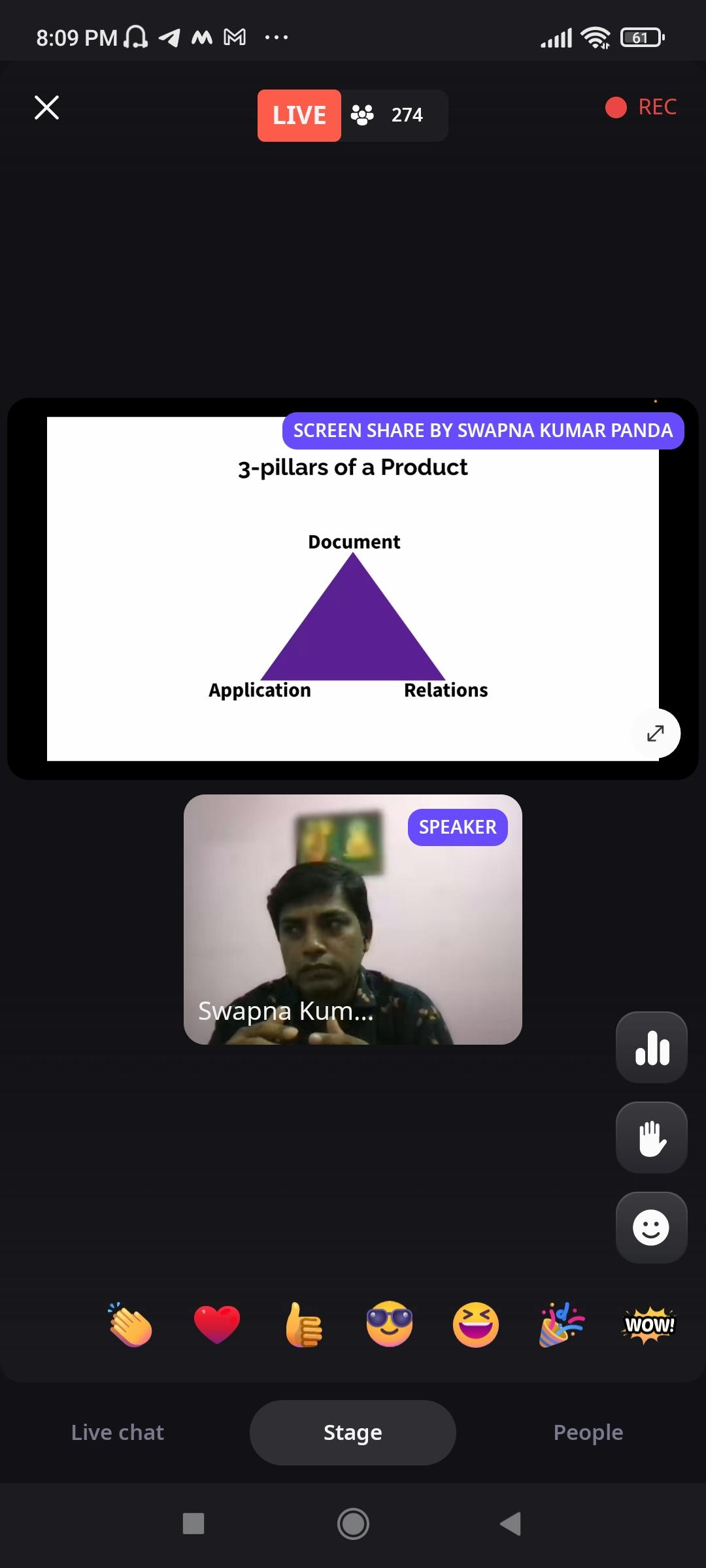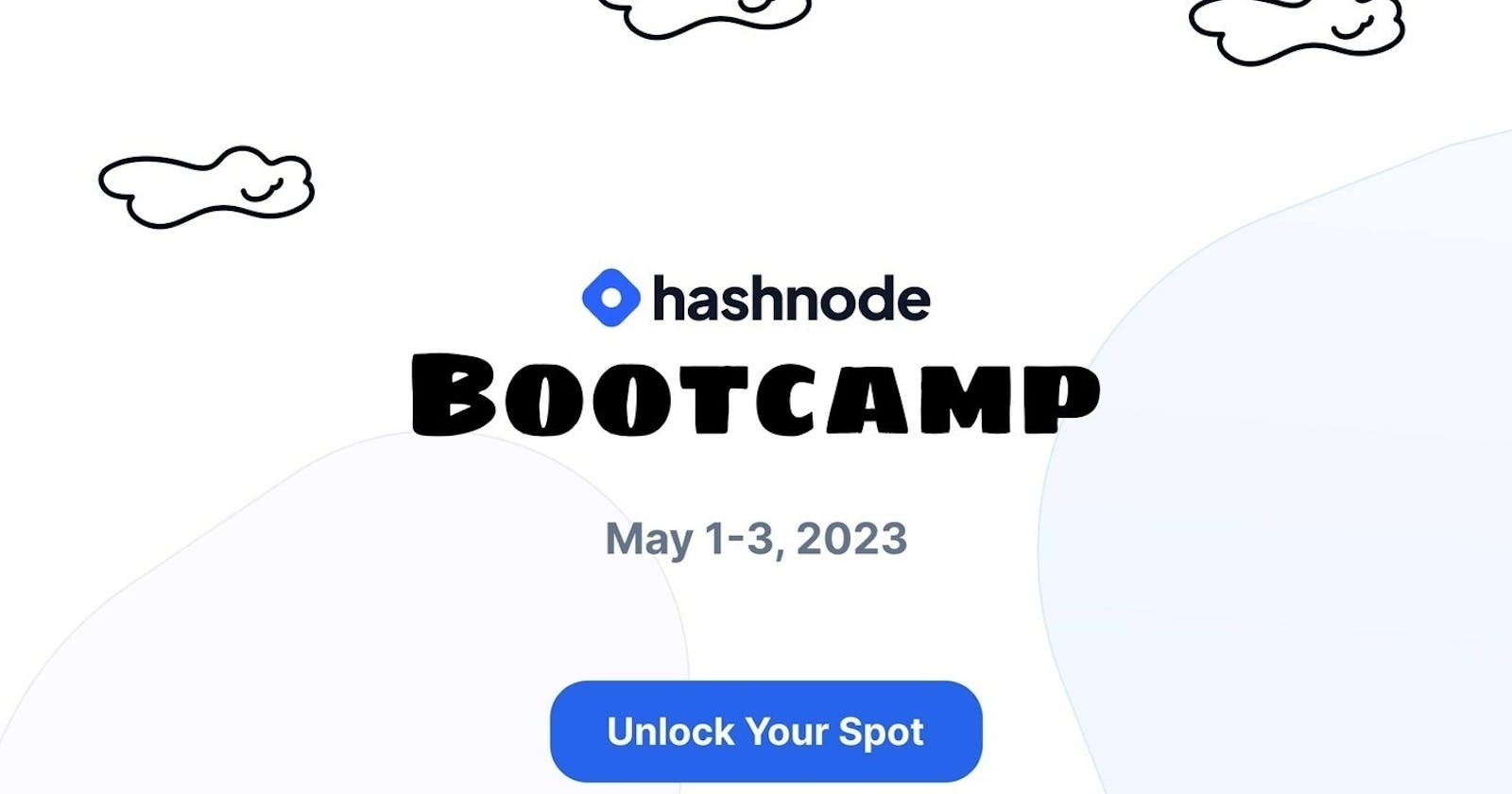Hashnode Bootcamp 2023 — Day 1: A summary on Importance of Technical Writing & its surrounding Opportunities
I had registered for Hashnode Bootcamp recently and got an opportunity to attend it in order to understand how we, as technical bloggers and writers, can leverage our platform and generate impressions and land writing opportunities. But first, we must understand the importance of writing as a developer. This is what we explored on the first day of the Bootcamp held on May 1, 2023.
The Bootcamp is being hosted by our favourite, Dani Passos, DevRel at Hashnode.
The speakers for the session were:
Ankur Tyagi — Software Engineer, Writer & Mentor
Swapna Kumar Panda — Tech Writer, Educator
Session 1: The Importance of Writing as a Developer

In the first session, Ankur talked about his experience in working in a distributed team and summarised how the team members worked on different aspects of Software Development. Then, he proceeded to emphasize on how ineffective communication comes into play within such teams, therefore documentation can work wonders for such teams to coordinate seamlessly.
He also stressed on the following points:
• Continuous process of blogging helps to learn, implement and explain new concepts in new domains, stay updated with the latest trends and best practices in the field.
• Blogging also helps leverage your vocabulary and communication skills especially in a formal tone: both verbal and written communication.
• Blogging also helps you actively practice relevant skills that can help you develop different documents like SRS document, Performance Plan, etc.
• You also get to learn how to effectively communicate your thoughts effectively during code reviews in a courteous and respectful manner.
• Blogging as well as reading blogs can also help you analyse what new projects you can kickoff.
Although he mentioned he's not into incorporating "PowerPoint slides" into his talk, we definitely learnt a lot from the Q&A session that followed.
Q&A session
I'll summarise the answers to some of the questions asked during the session, that gave me a new direction to create blogs:
🔹What are the first steps of diving into a technical career?
Ans-
Prerequisite for technical writing involves knowledge of certain tech stack, programming concepts, etc. You need to adopt a particular niche, especially a domain that particularly interests you. But, you can always start somewhere. Explore as much as you can before sticking to a particular niche.
Technical writing and blogging also provide decent remote opportunities for you to explore, so your hardwork gets paid well.
🔹 What's the right approach to getting ideas?
Ans-
Right approach to getting new ideas is to read more. Take inspiration not just from blogs but various other content that you consume on social media. Perhaps even try to solve the common problem that is being solved through another blog that you come across, but in your own way. Learn to add your own perspective and personal touch to your content. Cherish your own writing journey on the way.
🔹 What advice will you give to someone who is just starting out in tech and also trying to document their journeys through blogs?
Ans-
It is important that you don't make your content polarized. Keep exploring throughout your journey. Learn to jot down your ideas, revisit and revise them continuously. No blog is perfect and perfection is only a concept. If a blog is too long and tedious, break it into series of blogs to cater to audience who have really less attention span. You wouldn't want to let your audience skim through your paragraphs.
Some other important advices
• Blogging is not everyone's cup of tea. But it's definitely a tea that you should try. Do not start late, especially when you have ample amount of opportunities lying infront of you just couple of clicks away. Blogging is definitely not for everyone, but it takes time to understand if you're truly passionate or not, and for that, you need to taste the flavour of blogging. But if it feels forced, you can stop. Else if you think of blogging as a career prospect that you can pursue, then to monetize your blogging skill, you need to have something unique to offer and stand out from the crowd.
• Learn to be flexible with different tech stack. It definitely takes time to be proficient but do not hold on to one tech stack for too long. Be experimental and curious. Twitter can be a great place to stay updated with the latest trends.
• To make your blog reach out to a wider and more diverse audience and generate leads, you can try cross-posting your blogs on various blogging platforms. Your blog can be a great icebreaker conversation or an answer to a question under some Twitter thread as well, but you won't know until you interact.
• How to balance? Rome was not built in a day. Be consistent, but sometimes it doesn't hurt to put in extra effort. If you're passionate enough about it, give it some time and you'll find your way.
Session 2: Leveraging Technical Writing to Land Opportunities
In the second session, Swapna talked about leveraging the platform and our skills to land new opportunities in Technical Writing.
But there exists an even more important question for a developer to ask oneself: Why should I care about Technical Writing?
Technical Writing is being considered a great skill to make yourself stand out from the crowd in the eyes of the recruiter. The three pillars of a product include: Application, Document and Relations. Not only roles based on technical writing, but also those that do not revolve around the same require some sort of skill set in order to prepare important documents related to software development.

Thereafter, discussion revolved around the following points:
• what type of documents do developers come across
• what are the different formats in which you can put forth your content before the world: Text (Blogs, Articles), Audio (Podcasts), Video (Video tutorials) or Infographic
• different ways in which you can monetize your work such as:
Asking for subscriptions
Collaborations
Paid Content
Ghost writing
Paid Full-time opportunities
• what are the perks that you can receive as a Technical Writer:
Great soft skills (both written and verbal)
Better visibility and audience engagement
Remote opportunities and career growth
Improved lifestyle
• what different roles can we take up that are associated with or incorporate technical writing:
Mentor/Educator
Public Speaker
Developer Relations / Developer Advocacy Engineering
Celebrity
Brand Ambassador
He concluded the session by specifying that developers are first-hand problem solvers and that documentation can be an effective way to put this skill into a great use.
Conclusion
It was indeed a really thought-provoking and intriguing session that sheds a whole new light onto technical writing, breaks serious stereotypes surrounding it and encourages students and professionals to give it a chance, not necessarily as a full-time opportunity, but at least to enhance their own skills.

